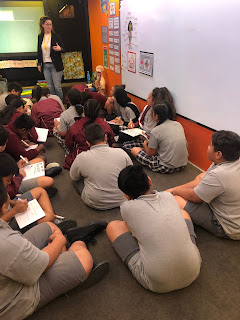What is Science? Science is the knowledge we get from asking questions that help us understand the world around us. Science is divided into four main branches known as, Chemistry, Biology, Physics and Geology & Astronomy.
Chemistry is the combination of two or more types of matter to create a new type of matter, for example the combination of hydrogen and oxygen creating H2O or water.
Biology is the study of life and living organisms like how your body extracts the benefits of nutrients to reduce risk of diseases and bacteria.
Physics is the force and motion of energy surrounding us dealing with the matter of the universe, for example the electricity we use to power a light bulb and the gravitational pull of the earth. Lastly,
Geology & Astronomy focuses on the structure of the earth and can also include the study of the solid features of any terrestrial planet or natural satellite such as Mars or the Moon. This also includes a study of celestial objects and phenomena.
There are two sorts of science: Basic and Applied science. Basic science is the discovery of new information. This science follows a cycle: asking questions, making a hypothesis, followed up by your experiments, and making a final conclusion (If your hypothesis were right) The other main category of science is called applied science. Applied science is more dependent on Basic science as it is the science of the utilities of what has been experimented on by using basic science.
L.I: To summarize the information.
This week for reading our focus is science. For this second activity my group and I skimmed and scanned our notes and shared ideas to create a collaborative summary explaining ‘what is science?’. We divided our lengthy summary into 3 following paragraphs: an introduction on science, the 4 main categories of science and the two types of science. We used a question dice that helped us with our learning and made us ask questions to help us think about our subject and provide ideas for our summary.






